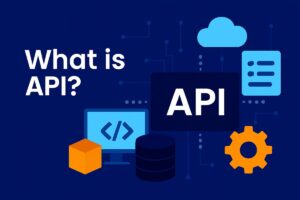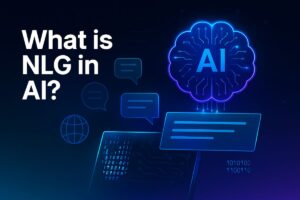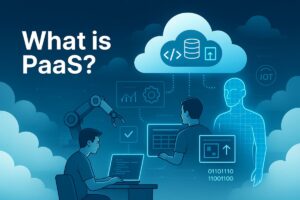The future of education is rapidly transforming with advancements in technology, evolving teaching methodologies, and global demands. This comprehensive guide explores emerging trends, innovative learning models, key challenges, and actionable solutions shaping the education landscape. Discover how AI, virtual classrooms, personalized learning, and lifelong education are redefining the way we learn and prepare for an uncertain future.
Education has always been the cornerstone of societal progress. But as we march into an era of rapid technological advancement, globalization, and shifting workforce needs, the future of education is poised for a revolutionary transformation. Curious minds are left wondering: What will classrooms look like in 10 or 20 years? How will students learn? And what skills will truly matter?
In this blog, we will explore these questions, dissect current trends, anticipate upcoming changes, and discuss how educators, students, and policymakers can prepare for the future of education. This is not just about predicting; it’s about understanding the direction education is taking and how it can best serve learners in a dynamic world.
The Driving Forces Behind The Future of Education
Several key factors are driving the future of education:
1. Technological Advancements
- Artificial Intelligence (AI)
- Virtual Reality (VR) and Augmented Reality (AR)
- Blockchain for credentialing
- Big Data and Learning Analytics
- Adaptive Learning Platforms
2. Globalization and Cultural Exchange
- Increased cultural diversity in classrooms
- Global collaboration opportunities
- Cross-border educational programs
3. Changing Workforce Demands
- Emphasis on soft skills (creativity, emotional intelligence, critical thinking)
- Lifelong learning to remain competitive
- Demand for STEM and digital literacy skills
4. Societal Shifts
- Growing awareness of mental health in education
- Inclusion and accessibility
- Personalized learning pathways
Emerging Trends Shaping The Future of Education
1. Personalized Learning
With AI-powered adaptive learning tools, educational content is being tailored to fit individual students’ learning paces, styles, and interests.
Benefits of Personalized Learning:
- Boosts student engagement
- Addresses individual strengths and weaknesses
- Allows for self-paced learning
- Reduces achievement gaps
2. Hybrid and Blended Learning Models
The COVID-19 pandemic accelerated the adoption of online learning. Moving forward, hybrid models combining online and in-person instruction will become the norm.
Hybrid Learning Advantages:
- Flexibility in learning
- Access to global educators
- Enhanced student autonomy
- Efficient use of classroom time for interactive activities
3. AI and Automation in Education
AI is transforming everything from administrative tasks to personalized tutoring.
Applications of AI:
- Automated grading and feedback
- Virtual teaching assistants
- Predictive analytics for student performance
- Intelligent content creation
4. Gamification and Immersive Learning
Incorporating game-like elements makes learning fun and engaging.
Gamification Features:
- Instant feedback
- Rewards and recognition
- Story-driven learning modules
- Competency-based progression
5. Microlearning and Nano-Degrees
Bite-sized learning modules and specialized certifications address specific skills needed in the job market.
Microlearning Benefits:
- Quick and focused lessons
- Immediate applicability
- Cost-effective
- Encourages lifelong learning
6. Lifelong Learning and Continuous Education
The half-life of skills is shrinking. Lifelong learning is essential to stay relevant in rapidly changing industries.
Strategies for Lifelong Learning:
- Online courses and MOOCs (Massive Open Online Courses)
- Professional certifications
- Industry workshops and seminars
Challenges Facing The Future of Education
1. Digital Divide
While technology can revolutionize education, unequal access remains a critical barrier.
Solutions:
- Government-funded programs for internet access
- Affordable devices for students
- Community learning centers
2. Privacy and Data Security
With increased use of technology comes concerns about student data privacy.
Mitigation Measures:
- Strict data protection policies
- Transparent data usage agreements
- Parental controls and oversight
3. Teacher Training and Readiness
Educators need support to adapt to new teaching methodologies and technologies.
Professional Development Needs:
- Ongoing tech training programs
- Pedagogical workshops
- Peer support communities
4. Equity and Inclusion
Ensuring all students, regardless of background, have access to quality education remains a global priority.
Key Actions:
- Inclusive curriculum design
- Universal design for learning (UDL)
- Cultural sensitivity training
5. Overemphasis on Technology
An over-reliance on technology can overshadow fundamental human aspects of learning.
Balanced Approach:
- Emphasize social-emotional learning (SEL)
- Promote critical thinking and creativity
- Foster face-to-face interaction alongside digital tools
The Future of Education Technologies
| Technology | Application | Benefits |
|---|---|---|
| AI | Personalized learning, automation | Tailored content, efficiency |
| VR/AR | Immersive simulations | Engaging experiential learning |
| Blockchain | Credential verification | Secure, tamper-proof records |
| Big Data | Learning analytics | Early intervention, targeted support |
| Gamification | Game-based learning | Motivation, improved retention |
Preparing Students for The Future of Education
Key Skills for Future Success:
- Critical thinking and problem-solving
- Creativity and innovation
- Digital literacy
- Emotional intelligence
- Collaboration and teamwork
- Adaptability and resilience
Role of Parents and Guardians
- Encourage curiosity and exploration
- Support technology usage responsibly
- Foster emotional well-being
- Advocate for personalized education pathways
Role of Educators
- Embrace lifelong learning themselves
- Foster inclusive and adaptive teaching
- Use technology as a tool, not a crutch
- Cultivate global citizenship and cultural awareness
Real-World Examples of The Future of Education in Action
1. Finland’s Education Model
- Less focus on standardized testing
- Emphasis on creativity, play, and well-being
- Teacher autonomy and professional respect
2. Singapore’s SkillsFuture Initiative
- National lifelong learning movement
- Government-funded training programs for citizens
- Close collaboration with industries
3. India’s National Education Policy 2020 (NEP)
- Holistic, flexible, multidisciplinary approach
- Vocational education from early stages
- Integration of technology in classrooms
- Emphasis on critical thinking and life skills
FAQs
Q1: What is the future of education? The future of education revolves around personalized, technology-driven learning that caters to individual needs while focusing on skills relevant to the 21st-century workforce.
Q2: How will technology impact the future of education? Technology will enable personalized learning, AI-powered tutoring, immersive VR experiences, and real-time performance tracking while improving accessibility and efficiency.
Q3: What challenges does the future of education face? Challenges include the digital divide, privacy concerns, teacher readiness, maintaining equity, and avoiding over-reliance on technology.
Q4: What skills are essential for the future of education? Critical thinking, emotional intelligence, digital literacy, creativity, adaptability, and global collaboration are crucial skills for the future.
Q5: How can developing countries prepare for the future of education? Investing in digital infrastructure, teacher training, inclusive policies, and affordable access to technology will help bridge gaps in developing regions.
Q6: Will traditional degrees become obsolete in the future of education? While traditional degrees will still hold value, micro-credentials, online certifications, and skill-specific training will gain prominence.
Q7: How does lifelong learning fit into the future of education? Lifelong learning ensures continuous skill development, keeping individuals relevant in evolving industries throughout their careers.
Q8: What role will AI play in the future of education? AI will personalize content, automate assessments, assist teachers, and offer real-time feedback, revolutionizing how education is delivered and consumed.
Q9: How does the future of education affect teachers? Teachers will evolve into facilitators and mentors, leveraging technology to enhance their teaching methods and address individual student needs more effectively.
Q10: Can remote learning fully replace traditional classrooms? Remote learning offers flexibility but cannot fully replace in-person interactions essential for social development and hands-on learning experiences.
Conclusion
The future of education is an exciting blend of innovation, challenges, and limitless possibilities. While technology will undeniably play a significant role, the human aspects of empathy, creativity, and critical thinking remain irreplaceable. To thrive, we must embrace change, invest in equitable access, support educators, and commit to lifelong learning.
As curious learners, educators, or parents, your role in shaping the future of education is vital. Share your thoughts, questions, or ideas in the comments below. Let’s envision and build a brighter, more inclusive, and empowering educational future together!


